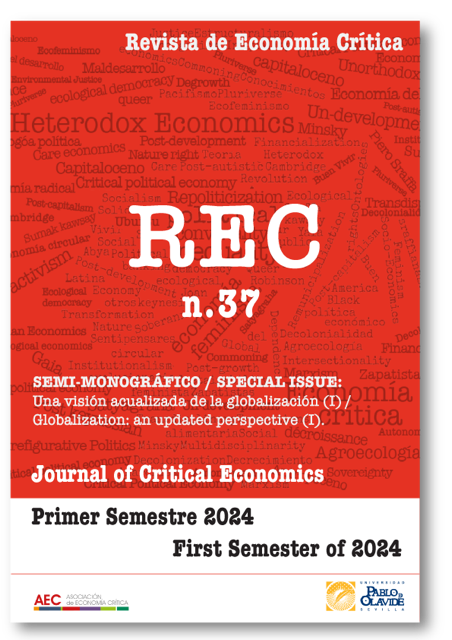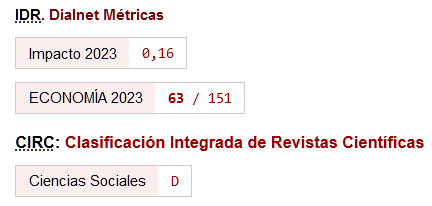Towards a new architecture for progressive international capital taxation
DOI:
https://doi.org/10.46661/rec.10712Abstract
The application and operation of the Global Anti-Base Erosion (GloBE) Rules agreed at the OECD and released in December 2021 have both strengths and weaknesses for developing countries. Now is the time to address directly the multilateral institutional "architecture" in relation to international tax negotiations. Despite the current geopolitical tensions, the nature of climate change and increased possibility of future health pandemics have made the need for global public goods provision – and thus global tax coordination – even more necessary. Moreover, the GloBe rules reflect the underrepresentation of non-OECD members in the process of the "Inclusive Framework," as evidenced by their absence in key committee leadership, paucity of specialised delegates and lack of explicit voting rights. Therefore, it is correct to welcome the recent UN resolution to work towards a worldwide Tax Convention.
Downloads
References
Aslam, Aquib and María Delgado Coelho (2021): "A Firm Lower Bound: Characteristics and Impact of Corporate Minimum Taxation." IMF Working Paper WP/21/161. Washington, DC: International Monetary Fund. https://doi.org/10.5089/9781513561073.001
Crivelli, Ernesto, Ruud De Mooij, and Michael Keen (2015): "Base Erosion, Profit Shifting and Developing Countries." IMF Working Paper WP/15/118. Washington, DC: International Monetary Fund. https://doi.org/10.5089/9781513563831.001
Ferreira Liotti, Belisa, Joy Waruguru Ndubai, Ruth Wamuyu, Ivan Lazarov and Jeffrey Owens (2022): "The treatment of tax incentives under Pillar Two." Transnational Corporations Vol. 29 No. 2. Geneva: UNCTAD. https://doi.org/10.18356/2076099x-29-2-2
FitzGerald, Valpy (2012): "Global capital markets, direct taxation and the redistribution of income." International Review of Applied Economics, 26:2, 241-252. http://dx.doi.org/10.1080/02692171.2011.640313
FitzGerald, Valpy and Erika Dayle Siu (2019): "The Effects of International Tax Competition on National Income Distribution." pp. 243–272 in Ocampo, José Antonio ed. International Policy Rules and Inequality. Columbia University Press, New York. https://doi.org/10.7312/ocam19084-009
G20/OECD (2021): Two-Pillar Solution to Address the Tax Challenges Arising from the Digitalisation of the Economy. Paris: OECD.
ICRICT (2019): International corporate tax reform. October, 2019. (www.icrict.org)
ICRICT (2022): It is time for a global asset registry to tackle hidden wealth. https://www.icrict.com/it-is-time-for-a-global-asset-registry-to-tackle-hidden-wealth.
IMF (2022): Fiscal Monitor. April 2022. Washington, DC: International Monetary Fund.
IMF (2023): International Corporate Tax Reform, IMF Policy Paper. Washington, DC: International Monetary Fund. https://doi.org/10.5089/9798400232558.007
Klemm, Alexander and Stefan van Parys (2012): "Empirical evidence on the effects of tax incentives." International Tax and Public Finance, Vol. 12, pp. 393–423. https://doi.org/10.1007/s10797-011-9194-8.
OECD (1998): Harmful Tax Competition: an emerging global issue. OECD, Paris.
OECD (2022): Tax Incentives and the Global Minimum Corporate Tax: Reconsidering Tax Incentives after the GloBE Rules. OECD, Paris.
Stausholm, Saila Naomi (2017): Rise of ineffective incentives: New empirical evidence on tax holidays in developing countries. Copenhagen Business School. https://doi.org/10.31235/osf.io/4sn3k
UN (2001): Report of the High-level Panel on Financing for Development ('Zedillo Commission'). New York: United Nations.
UN: The 17 Sustainable Development Goals. https://sdgs.un.org/goals.
Zee, Howell H., Janet Gale Stotsky and Eduardo Ley (2002): "Tax Incentives for Business Investment: A Primer for Policy Makers in Developing Countries." World Development, Vol. 30(9), pp. 1497–1516. https://doi.org/10.1016/S0305-750X(02)00050-5
Downloads
Published
How to Cite
Issue
Section
License
Copyright (c) 2024 Revista de Economía Crítica

This work is licensed under a Creative Commons Attribution 4.0 International License.
This licence allows third parties to share (copy and redistribute the material in any medium or format) and adapt (remix, transform and create from the material for any purpose, including commercial purposes), provided that authorship and first publication in this journal (The Journal, DOI of the work) is acknowledged, a link to the licence is provided, and it is stated whether changes have been made to the work.







